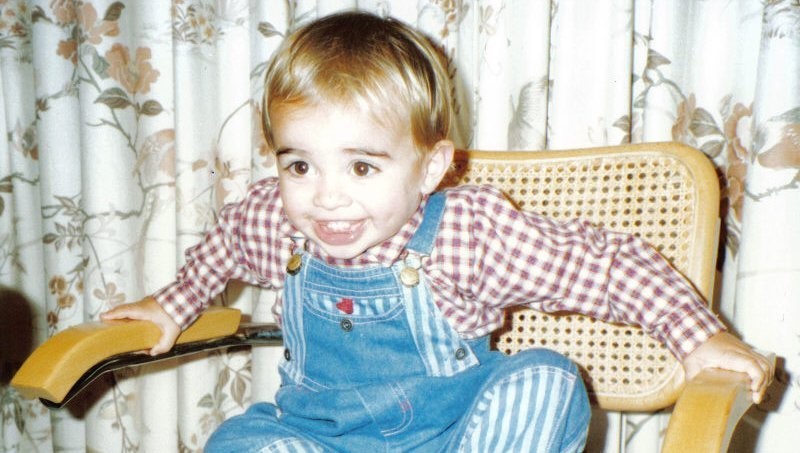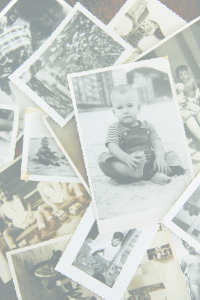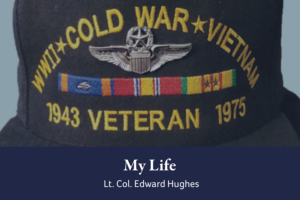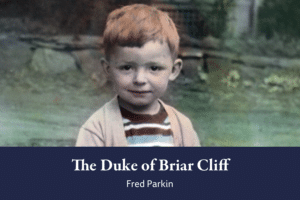My First Memories
Often the place to start when planning your memoir is to cast your mind back to your very first memories. Nobody really knows how those first memories cement themselves in your mind, but they often make for some great reading! Since we’re sharing, here’s a few of mine:
The earliest memory I can think of was a time pottering around the kitchen at three-years old, whilst my mother was sitting on the floor at the other end of the room. One of my favourite toys was a pull-back-and-go sailor on wheels, which could move pretty fast. Whilst Mum was looking the other way, I grabbed the toy and pulled it back as far as I could, sending it hurtling off in her direction at great speed. I scored a direct hit on her leg, which I thought was hilarious, Mum possibly not so much.

This is Buster the cat
This memory leads to another Memory
This memory leads on to another I have from that time, of my cat Buster running crazy-eyed under a bush whilst I was digging a much-needed hole in my parents’ garden. My toddler self decided to give said bush a good whack with my toy spade. Well, why not? Buster, not surprisingly, shot out from his presumed place of safety. (Buster was fine, by the way, and no animals were harmed during the writing of this post.)
There is also a hazy memory of mine of an outing to Dinton Pastures Country Park in Berkshire, a great place to feed the ducks on the lake there when you are a suitably duffle-coated two-year old. My duck-feeding technique back then? Launch the bread as fast as possible at the poor creatures whilst shouting “BEER” at the top of my voice. I can’t really explain that one, I’m afraid, it doesn’t make feeding them any easier. Needless to say my parents filmed that particular episode and Mum (possibly as revenge for the sailor story) has subsequently shown it to many people over the years.
Don’t forget the best bits
To reflect on these memories brings a smile to my face, as I recall those simpler times, before I had to worry about what to write in an article on planning for life stories. The task of drafting a memoir should never be too contrived or worrisome a project. Certainly, piecing together a rough timeline or a thematic guide to the book is a useful exercise when you first get started. However, simply taking some rough notes or retelling one of your favourite experiences can bring everything flooding back, with one memory leading to another ‒ and another.
The LifeBook support team
So, that’s why my job is to help LifeBook’s authors, which I do by guiding them through their own memoir-writing project. Over 12 sessions, our authors share their stories face-to-face with their specially assigned interviewer, who will be on hand to help gather these stories and prompt for details around them. One of our ghostwriters is assigned to the project and takes the stories from each recording of these conversations, converting them into a personal memoir. This memoir is carefully prepared and four review drafts are sent to the author as their book is being written. A further main review draft and a final edit later, we’ll typeset and then print five hardbacks, linen-bound copies of the author’s book.
It is always those little details that you remember which really stand out in the book. Having personally worked with over a 100 authors since I joined the company, with each new project I still look forward to that record of the first memory being placed into the book.
How we turn your memories into a LifeBook
LifeBook has the largest pool of professional ghostwriters in any autobiography service company in the world. LifeBook’s ghostwriters are passionate about bringing our authors’ lives to life, and in their own voice. Our ghostwriters currently write in British English, American English, French, German, Spanish and Greek and have various religious and cultural backgrounds.
LifeBook ghostwriters are carefully matched to the author
Our ghostwriters are carefully matched to each project based on their particular skills and knowledge to ensure that they effectively understand, appreciate, and capture the author’s background and story. Having passed our test and been trained in LifeBook’s style, they use their professional experience to deliver a priceless legacy in the author’s voice.
It is important that a ghostwriter can relate to different cultures. The use of English differs between the USA, the UK, Australia and Canada, not just in spelling but in idioms and cultural references. Similarly, the Jewish culture uses many Yiddish terms and we have ghostwriters who are very familiar with these unique terms and phrases.
Our ghostwriters tell us how much they enjoy the different projects and stories in which they become engaged. They also describe the satisfaction they get from knowing the books will be read and treasured for generations to come.
– Tom Harnett, LibeBook Project Manager –






